Bag Oil Edge Process Helps You to Re-recognize the Bag
By Flora Lee • 06/29 @ 2:39 • Bag Oil Edge Process Helps You to Re-recognize the Bag已关闭评论
After buying a bag,many consumers found that the use was less than three months, and the edge of the product opened, that is, the oil edge cracked. This has to make people to doubt whether they have bought inferior products. How did bag oil edge inspection pass? How can the oil treatment be so unreliable? In this case, they usually go back to the buying store and ask for repair or return. This profit is also one of the reasons why importers have a headache, so they need to find a factory that can handle oil properly in the early stage of production. So what is the oil edge? Under what circumstances will the oil edge crack? These problems are particularly important and are also the basis for importers to judge the quality of products.
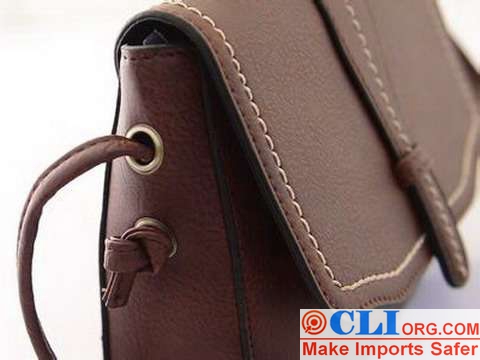
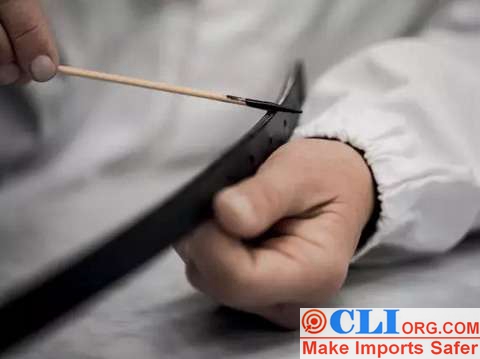
In fact, the oil edge is sanded first on the edge of the bag product part or the attached three-dimensional contour, and then coated with professional leather edge oil. The purpose is to cover up the cut-out of leather or leather and the problem of bare edges. In bag oil edge inspection, the appearance of the oil edge is very important, plus the inspection of odor. Generally speaking, the oil edge technology is divided into two kinds of thin oil and thick oil, the difference being for different kinds of bag products.
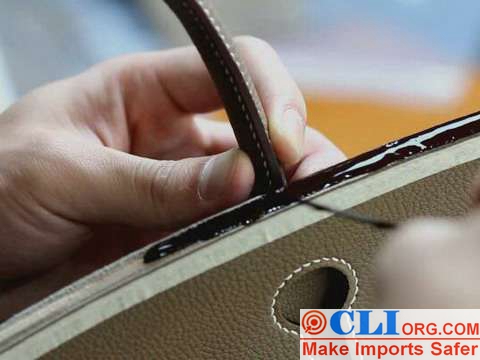
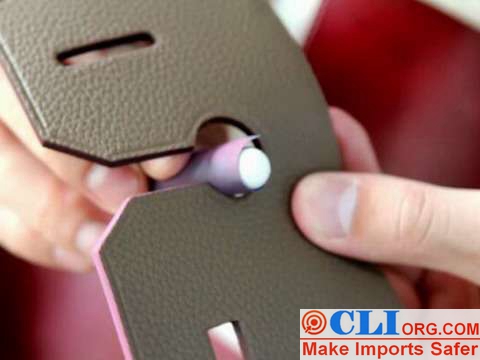
1.Thin oil technology: It is suitable for soft and hard leather, but after treatment, the edges of the products will have visible rough fibers and seams, so it can only be used to improve the color of the edges. Most of them are used for processing leisure handbags.
2.Thick oil technology: suitable for hard and flat leather, i.e some high-grade bag products on the market. Most of the requirements are that the edge treatment must be smooth and full.
Of course, before the oil edge treatment, it is necessary to prepare the edge oil whose color meets the customer’s requirements, and conduct oil testing in advance. After the oil testing is dry, it is required not to change color or crack, move or twist by hand at will and not to crack. At the same time, the treatment of oil leftover materials should also meet the requirements, full and smooth, and there should be no explosion, slot and sand grains. When oiling, the edge oil can’t go up, can’t get particles, and can’t stick hands, otherwise the oil edge effect is very poor.
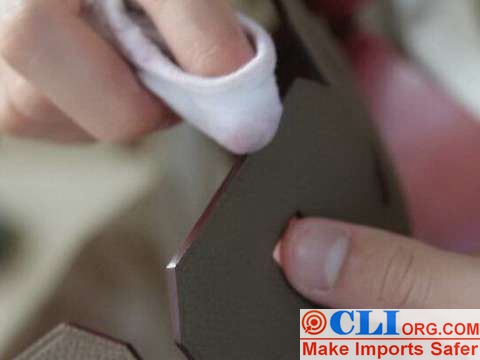
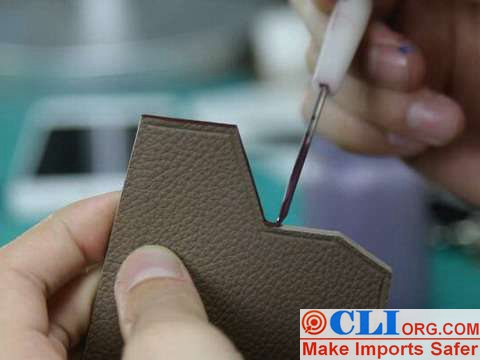
No matter what kind of oil-side process, the oil-side process of bag products needs to be polished at least three times in the production and manufacturing process: After the first oil drying, coarse grinding is performed. After the second oil dries,Fine grinding is performed. After the third inspection, fine grinding is performed again, then the oil-side effect is the best. It is also very important that some small workshops and factories do not pay attention to this problem. After the second natural drying of the border oil, cotton cloth should be used to wipe off excess residues with alcohol, making the edges smooth and neat, and helping to increase brightness. Bag oil edge inspection can help importers to identify the size of the factory by observing the brightness of the oil edge, and importers can arrange it at the same time Factory audit, further understanding of factory production lines and equipment to ensure product quality.
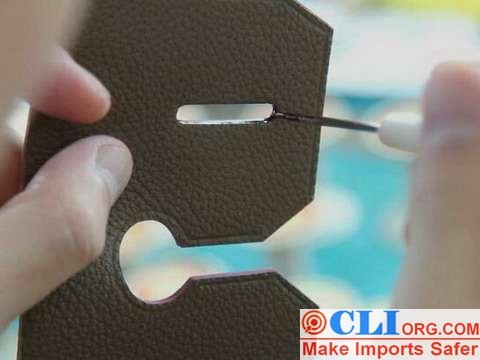
If the temperature changes too much in the process, the oil edge will burst, so the regular bag factory will choose high-quality edge oil when buying edge oil raw materials to ensure the quality of the products, thus successfully passing the bag oil edge inspection. CLI Initial Production Inspection can also help importers check the quality of border oil.
The complete oil edge technology also reminds consumers and importers once again that when selecting bag products, they should also pay attention to the edges of the products, not only the straight stitches, but also the smooth and smooth oil edges are also the guarantee of good quality.
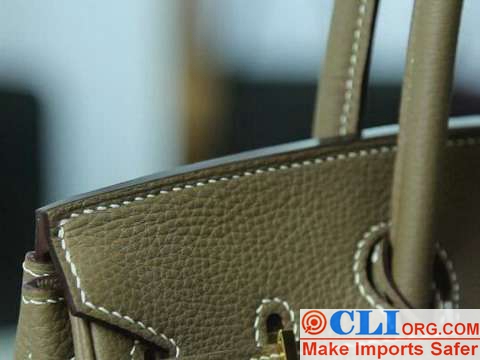
This article is an original article for CLI Inspection, who is committed to providing high-quality product inspection technology and know-how sharing for global importers and retailers to make imports safer.
All rights reserved. The contents of this website provided by CLI Inspection may not be reproduced or used without express permission.
For reprint, please contact with CLI Inspection, thank you.
Flora Lee
Senior professionals in the field of quality inspection are committed to finding and sharing valuable experiences.
SEARCH
Email Subscribers
Recent Posts
- register-081823 08/18 @ 8:03
- A Few Tricks to Teach You How to Easily Buy Luggage Case Bags With High Cost Performance ? 04/20 @ 8:47
- You Can’t Imagine That A Big Brand Like KAPPA Will Find Serious Batch Problems During Inspection! 04/13 @ 9:08
- Folding Table: Technological Comparison Between Two Factories 04/6 @ 8:45
- Are You Still Worried About Clothes Damaged by Hangers? 03/29 @ 8:26
Recent Comments
Monthly Files
Catalogue
Tags
BLOG
- register-081823 08/18 @ 8:03
- A Few Tricks to Teach You How to Easily Buy Luggage Case Bags With High Cost Performance ? 04/20 @ 8:47
- You Can’t Imagine That A Big Brand Like KAPPA Will Find Serious Batch Problems During Inspection! 04/13 @ 9:08
- Folding Table: Technological Comparison Between Two Factories 04/6 @ 8:45
